Lutetium-177-DOTATATE for treatment of Neuroendocrine Tumors (NETs)
Treatment prices are regulated by national law of the corresponding countries, but can also include additional hospital coefficients. In order to receive the individual cost calculation, please send us the request and medical records.

Department of Nuclear Medicine
The Department of Nuclear Medicine offers the full range of diagnostic and therapeutic procedures using modern radioactive substances. The diagnostic options include scintigraphic studies of the lungs, heart, brain, kidneys, lymph nodes, bones, including in small patients. In the field of therapy, one of the priority focuses is the use of radioiodine therapy for thyroid pathologies. Medical care and patient care are provided by highly qualified doctors and nursing staff who believe that the health and wellbeing of their patients is a top priority.
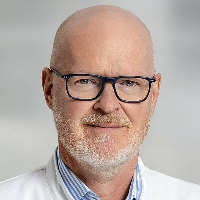


Department of Nuclear Medicine
The Department of Nuclear Medicine offers the full range of modern diagnostics and therapy using various radioisotopes. The department is equipped with the advanced systems for carrying out such high-precision and informative examinations as SPECT, PET, etc. The department carries out more than 8,000 outpatient examinations annually. The key focus in the field of diagnostics is on the detection of neurological, cardiac and oncological diseases. The department's therapeutic options include the treatment of benign and malignant diseases of the thyroid gland, pain therapy in bone metastases, treatment of malignant tumors in children (for example, neuroblastomas). The spectrum is also complemented by such innovative techniques as radiosynoviorthesis, selective internal radiation therapy and radioimmunotherapy.
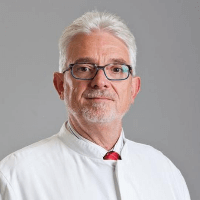





Department of Nuclear Medicine
The Department of Nuclear Medicine offers the full range of diagnostic and therapeutic services in the area of its specialization. Of particular interest are PET/CT, PET/MRI, SPECT/CT, as well as innovative therapeutic methods of nuclear medicine, such as peptide radioreceptor therapy for neuroendocrine tumors, liver tumor radioembolization, and treatment of prostate cancer using radioligands to prostate-specific membrane antigen (PSMA therapy). The department's doctors most often admit patients suffering from cancers, diseases of the nervous and cardiovascular system. The patients receive medical care from the highly qualified internationally renowned specialists with profound clinical training and rich experience. The department's doctors use only reliable radioisotopes, which do not have a harmful effect on the human body and do not cause any side effects. The patients are admitted both on an inpatient and outpatient basis.



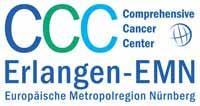

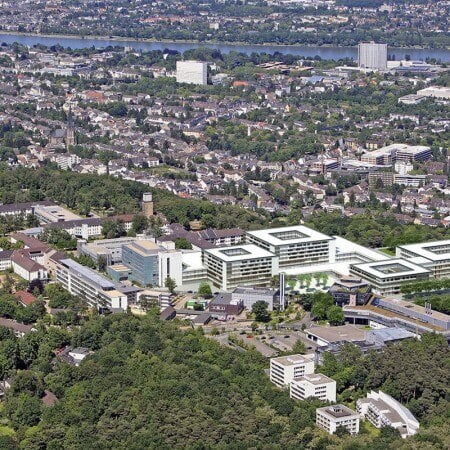
Department of Nuclear Medicine
The Department of Nuclear Medicine offers the full range of radioisotope diagnostics and treatment of various diseases. The department began its work in 1951 and today it is one of the leading and most reputable medical facilities of this kind in Germany. The clinical activities mainly focus on detection and treatment of pathologies of the thyroid gland, heart, lung cancer, breast cancer, prostate gland, liver cancer and metastases, neuroendocrine tumors, malignant melanoma, and brain tumors. The doctors use only reliable, the most effective innovative methods of examination and therapy, which guarantee an optimal result.
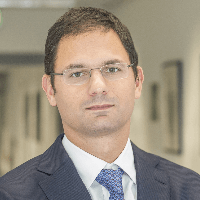



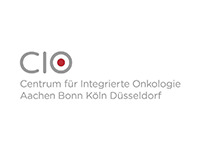
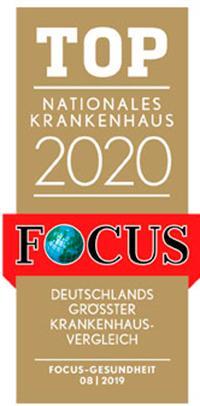

Department of Nuclear Medicine
The Department of Nuclear Medicine offers the full range of services in this medical field. It carries out all common and proven types of scintigraphic diagnostics and treatment. A unique offer of the department is SPECT-CT and PET-CT using various tracers and modern targeted radiopharmaceuticals. The department has an in-house Section of Radiochemistry, in which all the necessary radiopharmaceuticals for the diagnostics and therapy are synthesized. Thus, the department has all the resources to provide excellent medical service.





Department of Nuclear Medicine
The Department of Nuclear Medicine offers the full range of diagnostics and treatment with radioactive substances. It conducts many scintigraphic examinations, ranging from the diagnostics of the thyroid gland and skeleton to amino acid metabolism studies in brain tumors and metabolic studies in other malignant tumors. The department has at its disposal a specialized outpatient clinic for the diagnostics and treatment of thyroid diseases.




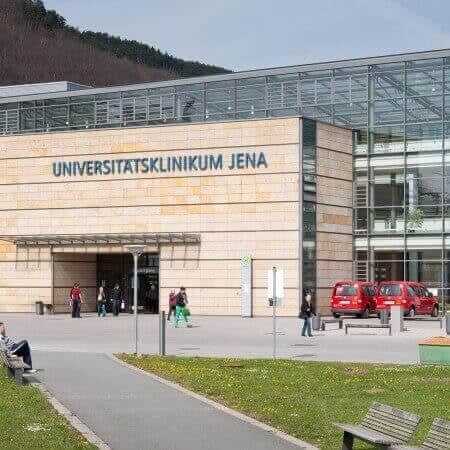
Department of Nuclear Medicine
The Department of Nuclear Medicine offers the full range of radioisotope diagnostics and treatment using the state-of-art gamma cameras and PET-CT systems. The main therapeutic facilities of the department include radioiodine therapy, selective internal radiotherapy, peptide-receptor radionuclide therapy. All medical services comply with the guidelines of national and international professional societies, which ensures an accurate diagnostics and optimal treatment outcome.
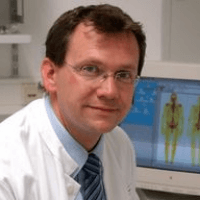



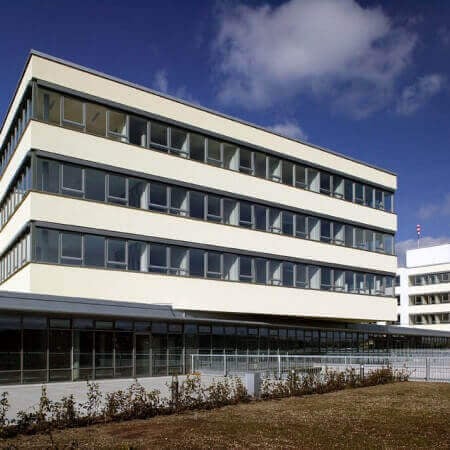
Department of Nuclear Medicine
The Department of Nuclear Medicine offers all modern diagnostic and therapeutic procedures using radioactive substances. In addition to the classical methods of nuclear diagnostics, for example, thyroid scintigraphy, special attention is paid to the functional and molecular imaging using the state-of-art PET-CT and SPECT-CT techniques. A special feature of the department is also the Section of Radiochemistry, which produces its own radiopharmaceutical medicines for the targeted therapy of oncopathology (including prostate cancer, neuroendocrine tumors or lymphomas), diseases of the cardiovascular system, and neurological disorders.




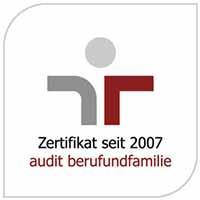
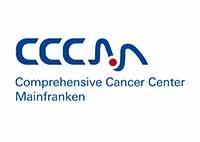

Department of Adult and Pediatric Nuclear Medicine
The Department of Adult and Pediatric Nuclear Medicine offers the full range of radioisotope diagnostics and therapy at the highest technical level. The department specializes in the detection and treatment of benign and malignant thyroid diseases, oncopathology of other organs and anatomical structures of the human body. The department's feature is the radioisotope examinations in children, for example, PET-CT, PET-MRI, kidney, bone scintigraphy, etc. The high-quality medical care is provided thanks to the availability of advanced medical technologies and experienced medical personnel who regularly undergo advanced training courses to keep abreast of medical innovations.
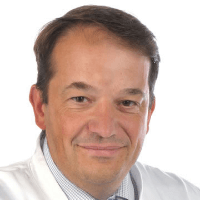





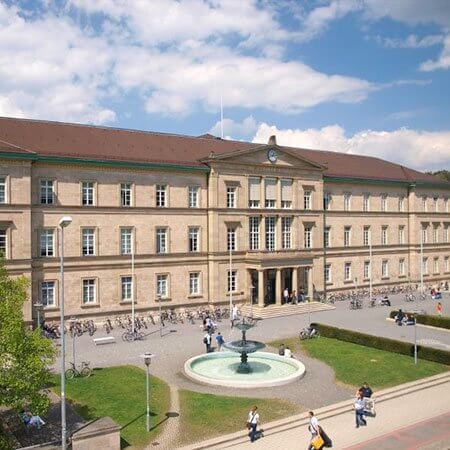
Department of Nuclear Medicine and Clinical Imaging Diagnostics
The Department of Nuclear Medicine and Clinical Imaging Diagnostics offers the full range of radioisotope diagnostics and treatment of various diseases. Both classical diagnostic methods, for example, scintigraphy, SPECT and innovative hybrid techniques, for example, PET-CT, PET-MRT, SPECT-CT are available in the department, which allow to detect metabolic changes at the early stages of various diseases, as well as their localization in the human body. In addition, the department's doctors specialize in radiotherapy for the treatment of oncopathologies.





Department of Nuclear Medicine
The Department of Nuclear Medicine offers the full range of radioisotope diagnostics and treatment of various diseases. The department is equipped with the advanced medical equipment, which provides the most accurate scanning of all anatomical structures and organs of the human body. In the field of treatment, the focus is on oncological, cardiological and neurological diseases. The department's doctors work in accordance with the international standards, therefore, each patient receives high-quality, individualized medical care.





Department of Nuclear Medicine
The Department of Nuclear Medicine offers the full range of radioisotope diagnostics and treatment. Of particular interest is the detection and treatment of thyroid diseases, endocrine tumors. The department also specializes in radioiodine therapy for the treatment of thyroid diseases, radionuclide therapy for bone metastases, MIBG therapy for the treatment of neuroblastomas, malignant pheochromocytes and many other therapies. In addition, the department operates its own Radiopharmaceutical Section, which produces radiopharmaceuticals for two positron emission tomography (PET) scanners.
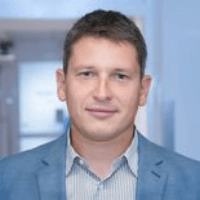




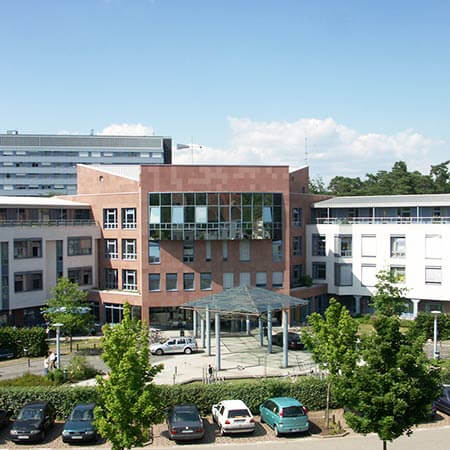
Department of Nuclear Medicine
The Department of Nuclear Medicine offers patients the full range of modern methods of diagnostics and treatment using radioactive isotopes. The department actively carries out the very latest radioisotope tests, such as scintigraphy, PET/CT scans, and SPECT/CT scans. These procedures allow doctors to assess the metabolic processes in the body, due to which many pathologies are detected in their early stages, which significantly increases the chances of their successful cure. As for the treatment, of particular interest is the treatment of thyroid diseases and oncological pathologies. The department's doctors successfully carry out radioiodine therapy, radiosynoviorthesis, selective internal radiation therapy, peptide receptor radionuclide therapy, and other therapeutic procedures. Treatment with radiopharmaceuticals is highly effective and practically does not cause any side effects. The department is certified by the German Cancer Society to treat many types of cancer. The department is the largest medical facility of this kind in Southwest Germany and offers patients top-class medical services.



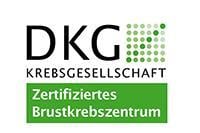
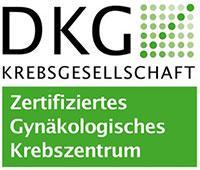
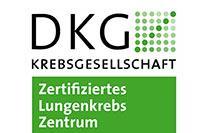

Department of Nuclear Medicine
The Department of Nuclear Medicine offers the full range of radioisotope diagnostics and treatment using radionuclides. Of particular interest to the department's specialists are the diagnostics and therapy of cancers, diseases of the nervous system, heart, musculoskeletal system, ENT pathologies, surgical diseases, disorders of the urological and gynecological sphere. The department's doctors carry out outpatient diagnostics, inpatient and outpatient treatment in accordance with the guidelines of professional societies.

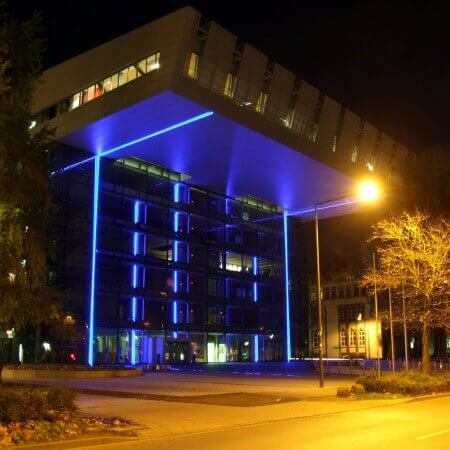
Department of Nuclear Medicine
The Department of Nuclear Medicine offers all the modern options of diagnostics and treatment using radioisotopes. Of particular interest in the field of diagnostics are PET, PET-CT, SPECT and scintigraphy. The key attention is also given to the diagnostics and treatment of thyroid diseases (thyroid scintigraphy and radioiodine therapy). In addition, the department's competence covers the diagnostics and treatment of diseases of the joints, prostate cancer, liver tumors, other benign and malignant pathologies.
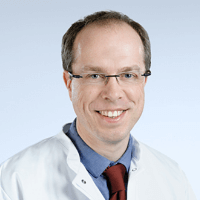

Department of Nuclear Medicine
The Department of Nuclear Medicine offers the full range of medical services in this area. The department successfully performs both diagnostic and therapeutic procedures using radioactive agents. The diagnostic range of services includes PET/MRI, PET/CT, SPECT, SPECT/CT, and scintigraphy. The therapeutic offer includes radioiodine therapy, peptide receptor radionuclide therapy, Lutetium-177 PSMA therapy, selective internal radiation therapy (SIRT), and other innovative radionuclide treatments. Of particular interest to the department's specialists are the diagnostics and treatment of thyroid, heart, brain, and oncological diseases. The department is also actively engaged in productive research activities, thanks to which many innovative therapeutic methods are implemented in clinical practice. As one of the best and largest medical facilities of its kind in Germany, the department has its own modern cyclotron for the production of radioisotopes that are used during diagnostic and therapeutic procedures. The department is certified in accordance with DIN EN ISO 9001:2015 for providing top-class medical service in the area of its competence. In addition, the medical institution is certified by the German Cancer Society (DKG) for the treatment of various types of cancer.
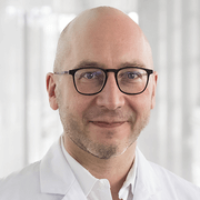




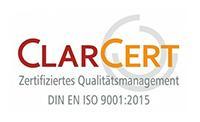
Administration of Lutetium-177-DOTATATE (instead of Lutetium PSMA) allows effectively treating neuroendocrine tumors of any localization, including lung, prostate, pancreas, and colon neoplasms.
Leading hospitals that offer NETs treatment are Helios Hospital Berlin-Buch, University Hospital Frankfurt-am-Main, and University Hospital Carl Gustav Carus Dresden.
The price of therapy depends on the NET type. For instance, the average cost of NET of colon treatment with Lu-177 is 18,000 EUR.
Neuroendocrine cancer is a challenging diagnosis because NETs can develop in different parts of the body and progress differently depending on their location, causing manifestations similar to many other conditions. As a result, many patients are diagnosed with neuroendocrine tumors after the disease has already progressed to the advanced stages, making it difficult to treat with surgery and other therapies. Fortunately, therapeutic radionuclides (i.e. Lutetium-177-DOTATATE) are able to find neoplasms in any location and destroy them with targeted irradiation.
Content
- Why are NETs difficult to treat?
- What are the treatment options for neuroendocrine tumors (NETs)?
- Looking at the new ways to treat NETs
- What is radionuclide therapy, and how does it work?
- Advantages of the Lutetium therapy
- The cost of treatment with Lu-177
- The best hospitals for undergoing Lutetium therapy abroad
- How to travel for Lutetium therapy abroad?
Why are NETs difficult to treat?
Treatment of neuroendocrine cancer is a challenging medical task. This is primarily due to the increasing incidences of NETs, especially in recent years. Data from various clinical trials demonstrate a five fold increase of neuroendocrine tumors of different localizations in the last five years. At the same time, the diagnostics of neuroendocrine neoplasms has also improved. Nevertheless, NETs represent a small part of all malignant neoplasms (less than 10% of all tumors) and can be considered rare tumors. These tumors most frequently occur in different parts of the gastrointestinal tract (e.g. in the pancreas, colon or appendix) and the lungs.
What are the treatment options for neuroendocrine tumors (NETs)?
Patients with neuroendocrine cancer are usually offered active surveillance, surgery, drug therapy, or radiotherapy. So, how are each of the methods applied for different groups of patients?
Active surveillance is offered to patients with neuroendocrine tumors that are less than 2 cm in size and without any hormonal activity. These neoplasms usually demonstrate no signs of aggressiveness and tend to remain stable in size, so the surveillance approach seems safe. Active surveillance includes a radiological examination (ultrasound scan/magnetic resonance imaging) every six months for the first two years after the diagnosis, and every twelve months after that.
Surgical removal is the most common and primary method of cancer management and cures neuroendocrine cancer completely in most patients. Some of these surgical procedures can be performed with minimally invasive, laparoscopic access.
Radiotherapy is usually prescribed to patients suffering with metastatic or inoperable tumors. It involves using a somatostatin-like drug, appropriately labeled with a radioactive isotope. The radiopharmaceutical is administered intravenously. It recognizes the target due to the binding of the somatostatin analog to the corresponding receptors, and allows selective irradiation of the tumor cells.
Drug therapies are usually reserved for patients with tumors that are inoperable or metastatic, biologically aggressive, and/or are not amenable to treatment with somatostatin analogs. Traditional chemotherapeutic and innovative drugs are used to selectively target the mechanisms responsible for the growth and metastasizing of these neoplasms.
Modern treatment options for NETs have been supplemented with new techniques. Traditionally, surgical treatment, radiation treatment, chemotherapy, and local therapy are used. However, alternative methods such as chemoembolization can be used as a palliative option in patients who are not eligible for radical treatment. As a rule, the effectiveness of such techniques for tumors with low hormone excretion levels is as high as 50%. Radiofrequency ablation or cryoablation can also be used in combination with, or after, cytoreductive surgery.
Looking at the new ways to treat NETs
Despite the high recurrence rate (up to 84% during five years of follow-up examinations), the survival rates are also relatively high – up to 61% of cases at five years and 35% at ten years. Such statistics are forcing the medical community to look for alternative treatment methods.
New advances in early diagnostics and the effective treatment of patients with both oncological and non-oncological neuroendocrine diseases owe much to the emergence of modern radiological diagnostic and therapeutic technologies. Radiological methods of diagnosis making and treatment are now implemented into the entire health care system. Today, no one is surprised that there are X-ray and ultrasound diagnostic rooms at health care dispensaries and district hospitals. In large cities and regional hospitals, both computed tomographic examinations and necessary radioisotope examinations, can be performed for the early detection of diseases and functional disorders of organs and systems, even before any clinical signs appear. However, modern, high-tech radiological techniques that are capable of successfully competing with traditional treatment methods, including surgery, are predominantly developed in large, research-oriented hospitals with the necessary infrastructure, highly qualified trained specialists, and proper scientific foundation.
Radionuclide therapy may be the optimal therapy for rare malignant tumors. Scientists are continuing to look for entirely new uses of radionuclide therapy. Worldwide trials are investigating the effectiveness of combining this treatment with other antitumor agents, combining different radionuclide drugs, different transport proteins and isotopes, the possibility of expanding the indications for use, and the possibility of injecting the drug into the arteries that feed the neoplasm (to avoid the drugs entering the systemic bloodstream), this would allow the dosage to be safely increased without the risk of severe side effects developing.
What is radionuclide therapy, and how does it work?
Most neuroendocrine tumors contain a large number of somatostatin receptors on their surfaces. Therefore, innovative treatment methods that act on the receptors have demonstrated a significant advantage in the treatment of NETs.
Radionuclide therapy with Lutetium-177 for neuroendocrine tumors uses a radiation source (the so-called beta emitter) bound to somatostatin analogs, which are administered intravenously. The radiation source enters the bloodstream and then finds the tumor and its metastases, penetrating the tumor cells and irradiating them. The obligatory requirement for this Lutetium therapy is a large number of somatostatin receptors on the tumor cells. And therefore, before starting treatment, a somatostatin receptor PET/CT is performed to evaluate the number of receptors.
In addition, different types of malignant tumors can be treated with the radionuclide therapy with Lu-177, which targetedly delivers potent doses of radiation directly to the tumor cells, using the receptors detected. As a result, radiation therapy causes the tumors to shrink as the cancer cells die.
Advantages of the Lutetium therapy
A key advantage of treatment with Lutetium-177 for neuroendocrine tumors over other radiation therapy modalities (which, generally, can be considered similar in their mechanisms of action) is the ability of direct delivery of therapeutic radionuclides to the tumor or target site. This works because some tumors have an excess (overexpression) of peptide receptors compared to normal tissues. Lu-177 can be combined with the corresponding peptide (or its analog) to bind to the specific tumor. With a gamma-emitting radionuclide, this method can be used to receive images with a gamma camera or PET scanner for tumor detection.
The fact that the Lu-177 beta-emitter penetrates tissue to a depth of no more than 2 mm makes most patients with neuroendocrine tumors candidates for Lutetium therapy. Thus, even small cancer foci can be irradiated with high precision, without affecting the surrounding tissue significantly.
Since the protein molecule binds specifically to the somatostatin receptors on tumor cells, the therapeutic agent accumulates only in the tumor, allowing for the targeted irradiation of the malignant cells. The radiation in the human tissue, in this case, has a radius action of only a few millimeters. Thus, a higher and more effective dose of radiation can be targeted directly against the cancer cells using Lu-177 based medicine, compared to traditional radiation therapy.
Various clinical trials have demonstrated that tumor progression can be slowed down with the help of Lutetium therapy. Therapy can reduce pain, reduce tumor activity, and significantly improve a patient’s quality of life.
The fact of the matter is, that some innovative therapies have no alternative for deadly diseases. For example, the latest types of immunotherapy are used abroad for patients with advanced forms of cancer. If successful, they make it possible to achieve a complete remission, with the disappearance of the primary tumor and all the metastases. Treatment with innovative methods, like Lutetium therapy, is also used to avoid traumatic interventions. Therefore, treatment with Lu-177 can save the lives of many patients.
The cost of treatment with Lu-177
The cost of treatment depends on the necessary diagnostic procedures to be performed, the chosen treatment tactics, and the duration of the stays in hospitals. But, even before arriving, patients are usually curious about the prices of treatment with Lutetium-177 for neuroendocrine tumors. The cost of treatment also varies depending on the country patients want to undergo Lutetium therapy in. For example, the cost of treatment with Lutetium therapy in Germany starts at 13,965 EUR, and the cost of treatment in Austria starts at 12,000 EUR.
To get an extensive price list, leave a request on the Booking Health website. A medical advisor will quickly process your request and provide comprehensive information on matters of interest, such as suitable treatment programs available or the necessary documents for undergoing treatment in hospitals abroad. If you have international insurance, it may cover the expenses completely or partially.
The best hospitals for undergoing Lutetium therapy abroad
Hundreds of thousands of foreign patients are treated in hospitals abroad every year. Advanced therapeutic methods, cutting-edge diagnostics, highly skilled doctors and paramedical staff, quality service, transparent prices, a wide range of services, and the excellent health statistics being a general indicator of the quality levels at hospitals abroad, make foreign medicine undoubtedly popular.
The following hospitals are ready to accept patients for Lutetium therapy right now:
- University Hospital Saarland Homburg;
- University Hospital Marburg UKGM;
- University Hospital Ulm;
- Central Clinic Bad Berka;
- University Hospital Muenster;
- University Hospital Mainz.
If you feel confused about choosing a healthcare facility, contact Booking Health to get a personalized hospital and doctor selection based on your clinical situation.
How to travel for Lutetium therapy abroad?
Finding information about hospitals in the age of internet technology is not difficult, but knowing just the contact information is not enough. Preparing a trip takes more than one day and includes many steps, from preparing and sending medical reports, to coordinating appointments and obtaining visas. Buying airline tickets, searching for and booking accommodation, calculating expenses, and solving unexpected issues with the independent planning of check-up and treatment abroad – all of these factors rest on the shoulders of patients, or, more often, on the shoulders of their relatives. By contacting a specialized medical tourism company, you will save time, energy, and money.
Booking Health is ready to help you organize your whole treatment abroad. Booking Health manages the negotiation with a chosen hospital, preparing and translating all the necessary documents, booking airline tickets, accommodation, and transfers, and providing assistance during every step of your treatment journey. Feel free to leave a request on the Booking Health website to start your treatment, or simply to get your questions answered.
Authors:
The article was edited by medical experts, board certified doctors Dr. Vadim Zhiliuk and Dr. Sergey Pashchenko. For the treatment of the conditions referred to in the article, you must consult a doctor; the information in the article is not intended for self-medication!
Sources: